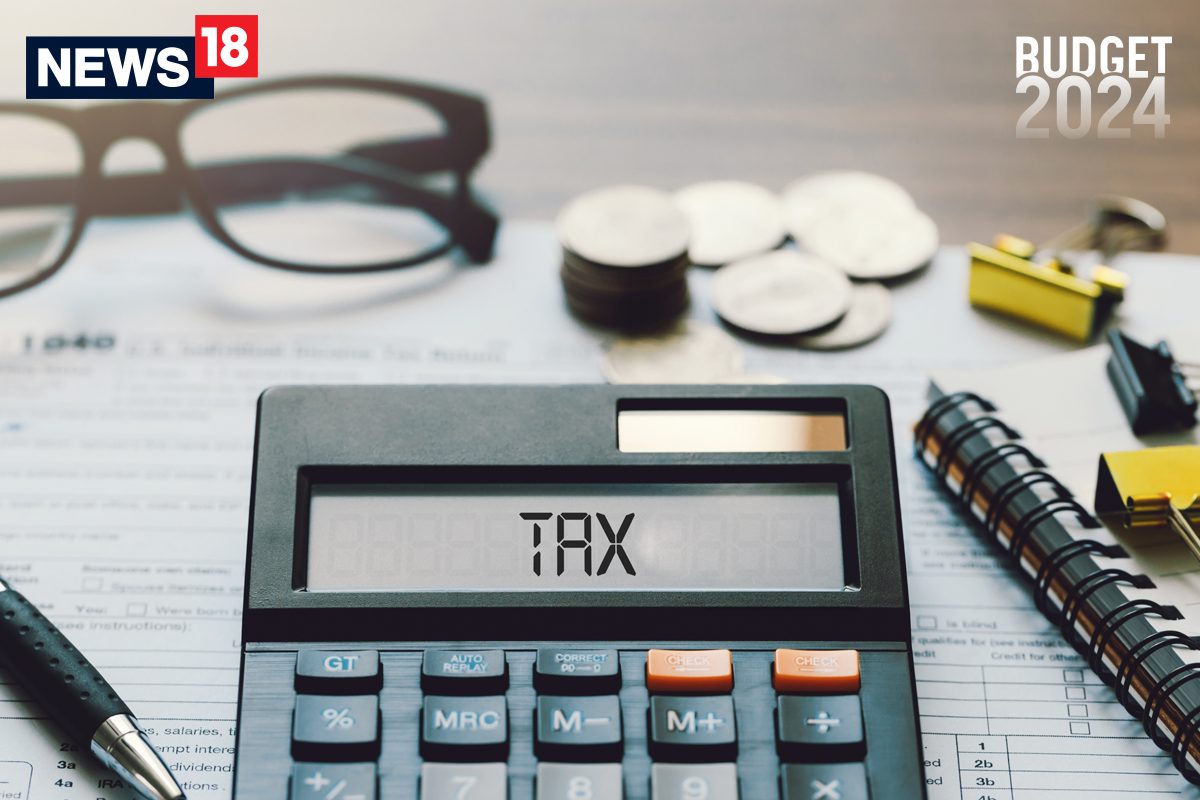Union Budget 2024: Retail investors could hit hard, as the long-term capital gains tax (LTCG) on all financial assets, including equity, has been hiked to 12.5 per cent from 10 per cent with immidiate effect. Small traders would get a bigger hit, as the short-term capital gains tax has been raised to 20 per cent (with immediate effect) from 15 per cent earlier.
This will be effective from October 1. The only relief in the Budget 2024 was an increase the exemption limit of capital gains on financial assets to Rs 1.25 lakh from Rs 1 lakh earlier.
Long-Term Capital Gains: The tax rate on long-term capital gains for all financial and non-financial assets will rise from 10% to 12.5%. Additionally, the exemption limit for these gains has been set at Rs 1.25 lakh per year.
Short-Term Capital Gains: The tax rate on short-term gains from certain financial assets will increase from 15% to 20%.
The equity benchmark indices went into a freefall mode as the finance minister Nirmala Sitharaman announced a hike in long term capital gains tax.
Presenting the budget, Sitharaman emphasized India’s robust economic growth amidst global uncertainties. “India’s economic growth continues to be the shining exception and will remain so in the years ahead,” she stated. She also noted that while the global economy is performing better than expected, it faces significant policy uncertainties, with downside risks to growth and upside risks to inflation.
The FM listed Nine priorities for this year and coming years. These include Productivity and resilience in Agriculture, Employment and skilling, Inclusive HRD and social justice, Manufacturing and services, Urban development, Energy security, Infra, Innovation and R&D; and Next generation reforms. This focusses on job creation and boosting consumption, potentially benefiting consumer goods, real estate, and auto sectors.
What are the current tax rules for LTCG, STCG?
As per income tax rules, when an individual sells a capital asset, he/she can earn capital gains or losses. These capital gains or losses are categorised as short term or long-term depending on the nature of the capital asset and the period of holding specified for the asset for the purpose of this categorisation.
For instance, if the equity shares listed on a stock exchange are sold before 12 months are completed from date of purchase, then capital gains or loss will be categorised as short-term. If the listed equity shares are sold after completion of 12 months, then capital gains or loss will be categorised as long term. On the other hand, for unlisted equity shares, if sold before 24 months, the gains or loss will be called short term. If the unlisted equity shares are sold after 24 months, then gains.
Long-term capital gains, long term capital losses, short-term capital gains, and short term capital losses are abbreviated as LTCG, LTCL, STCG and STCL respectively.
Experts Talk
Shlok Srivastav, Cofounder & COO, Appreciate, “In all fairness, markets and the business ecosystem were anticipating some bid at “rationalisation” of the long term and short-term capital gains tax rates. The drastic revision of STCG from 15 per cent to 20 per cent makes sense given that there have been renewed murmurs vis-a-vis the overheating of the derivatives market. The recent statement by the market regulator that the growth in trading volume has now leapfrogged to a macro level concern from being a micro-one was a big hint that the government was actively looking to temper and moderate the action in the derivatives segment. Having said that, one must tip their hat to the government for killing two birds with one stone with the revision in LTCG. For serious long-term investors, the increase from 10% to 12.5% would hardly make a dent in the larger accounting of gains. At the same time, it will nudge investors into entering Indian markets with a reasonably long-term outlook and encourage them to step up as actual stakeholders in the Indian growth story. Sure, the LTCG hike would be a market sentiment dampener for some time but as we know from hindsight, capital market players are going to take this move into stride and move on.”
Shravan Shetty, Managing Director at Primus Partners, said: “The increase in long term capital gain will have a negative while the intent to reduce the euphoria in the market is right. But we believe increasing the long term capital gain by 25% to 12.5% will lead to investments move towards unproductive assets like gold and real estate. For a growing economy like India increasing penetration of capital markets is critical and this measure will reduce the acceleration seen in this direction over last few years.”
On capital gains tax in new tax regime, Rajarshi Dasgupta, Executive Director, AQUILAW says “The Long Term Capital Gains (LTCG) tax will rise from 10% to 12.5%, and the Short Term Capital Gains (STCG) tax on certain assets will increase from 15% to 20%. Short term gains on certain financial assets shall henceforth attract a tax rate of 20%, while that on all other financial assets and all non-financial assets shall continue to attract the applicable tax rate. The limit of exemption of capital gains on certain financial assets has been increased to Rs 1.25 lakh per year. In addition, Sitharaman also announced a hike in STT (securities transaction tax) on F&O (futures and options) securities by 0.02% and 0.1% in order to discourage retail investors from trading in the risky market segment.
The widening gap between STCG and LTCG rates is a clear incentive for longer-term holdings, which aligns with our view of creating sustainable wealth. This move is also a step towards standardising taxation across various asset classes, potentially simplifying the investment decision-making process for many.”

